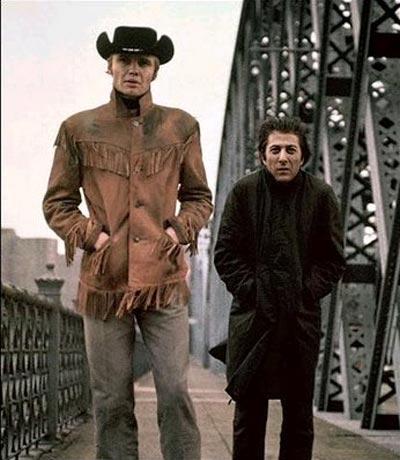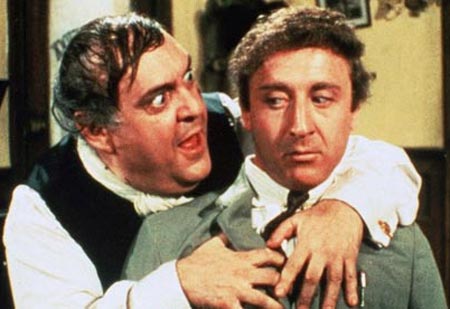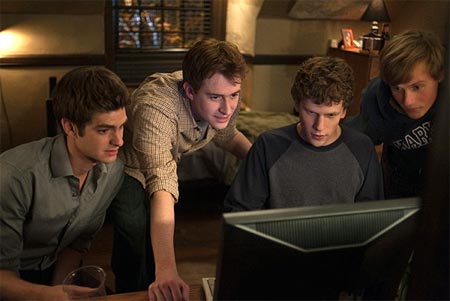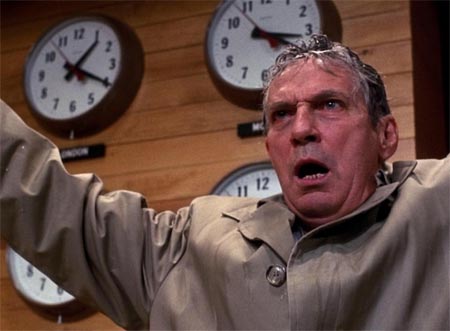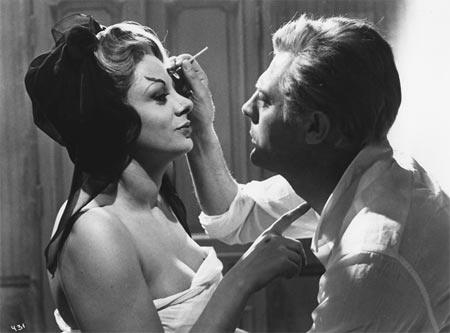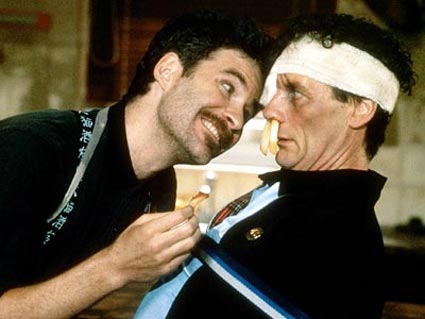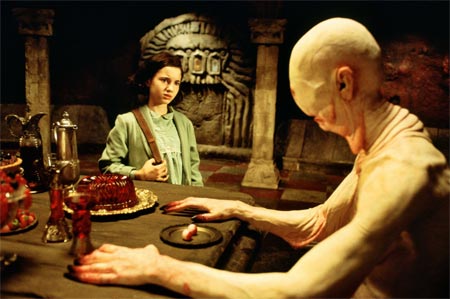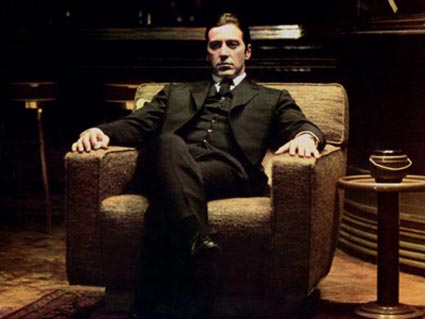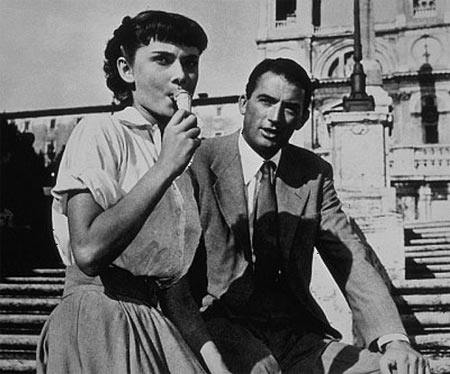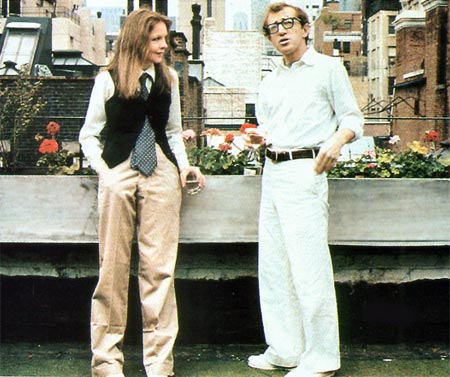Ten times the Oscars REALLY got it RIGHT
Last updated on: February 20, 2012 19:48 IST
I'm often considered an Oscar scrooge, and must grudgingly admit to turning rather grouchy come envelope-opening time.
There is much politicking, canvassing, neglecting that takes place as the Academy Of Motion Picture Arts and Sciences ticks its boxes, and many are the deserving but snubbed nominees I have first championed and then wailed about, ineffectually, year after year.
Sometimes, though, the Academy gets it so goddamned right it makes everything else irrelevant. With one trophy-handing masterstroke, it glosses over many a wrong and makes us believe again.
So I decided to pick 10 such times, 10 times the Academy went for unpredictable winners, championed underdogs, showed some backbone and, resultantly, 10 times for which it deserves immense, grateful applause. Over the next few slides lies my list of winners, one for each major Oscar category.
Best Original Screenplay: Mel Brooks (The Producers)
Last updated on: February 20, 2012 19:48 IST
In the year 1968, the Best Screenplay award was hotly contested, including such cinematic heavyweights as Stanley Kubrick (for 2001: A Space Odyssey) and John Cassavetes (for Faces). But it was young Jewish funnyman Mel Brooks who picked up the award for his directorial debut, The Producers.
A genuinely inventive comedy about trying to make the world's worst theatrical production, this film -- starring Zero Mostel and Gene Wilder -- went on to turn into a Broadway legend, which was then turned back into a film.
Just look to cash-strapped Mostel's cardboard belt if you don't believe me.
Best Supporting Actress: Marisa Tomei (My Cousin Vinny)
Last updated on: February 20, 2012 19:48 IST
The finest actresses crowded this category in 1992, from Miranda Richardson (Damage) to Vanessa Redgrave (Howards End) to Judy Davis (Husbands And Wives). But the Oscar went to 27-year-old Tomei for her sparklingly sassy performance in Jonathan Lynn's My Cousin Vinny.
Tomei's NooYawk-tongued Mona Lisa Vito carries the film, trying to make nice with her impossible boyfriend, ranting about her biological clock while stamping her heels in an animal-printed bodysuit, and finally, at the witness stand, spilling over with infectious joy as she solves the court case the film centres around.
Best Score: Trent Reznor and Atticus Ross (The Social Network)
Last updated on: February 20, 2012 19:48 IST
The Academy is notorious for giving this prize to only one kind of score -- an overarching, orchestral, often classically-steeped bit of pomp -- which explains why John Williams keeps winning and endlessly inventive legends Ennio Morricone, Danny Elfman and Philip Glass haven't yet.
In 2010, however, despite Hans Zimmer's Inception, Alexandre Desplat's The King's Speech and AR Rahman's 127 Hours, there was just one true winner and the Oscar rightfully went to Nine Inch Nails men Reznor and Ross for their remarkable first film score.
In a dialogue-laden film relying heavily on pace, the score accentuates, elevates, enlivens and dramatises -- without ever distracting, which is quite a feat for something as beautiful.
Best Actor: Peter Finch (Network)
Last updated on: February 20, 2012 19:48 IST
1976 was a particularly crammed year for the actors with Robert De Niro's Travis Bickle (Taxi Driver), William Holden's Max Schumacher (Network) and Sylvester Stallone's Rocky Balboa (Rocky) all up for the prize and looking good.
In what is considered one of Oscar's most crazy upsets, Rocky beat Network, Taxi Driver and All The President's Men for the Best Picture prize, but lost out on the acting trophy as it was posthumously presented to Finch, for his rabble-rousing turn as Howard Beale, the television anchor who announced that he would blow his brains out during the 7'o'clock news.
It is a brave, loony, off-the-wall performance that gives that miraculously prescient film its gravitas, making it a frighteningly realistic nightmare.
Best Foreign Language Film: (8 1/2)
Last updated on: February 20, 2012 19:48 IST
Federico Fellini winning an Oscar for Best Foreign Language Film was hardly an upset -- the Italian master won four of those, a record that remains unmatched to this day.
Yet the 1963 triumph of this peerless masterpiece -- my personal favourite film of all time, in all of cinema -- is one that must be celebrated.
Roman Polanski's Knife In The Water (Poland) and Vasilis Georgiadis' The Red Lanterns (Greece) were striking films, but Fellini's sublimely surreal take on a great director unable to conceive his next film was both mind-bogglingly imaginative and tremendously insightful. Surely the best film about film, ever.
Best Supporting Actor: Kevin Kline (A Fish Called Wanda)
Last updated on: February 20, 2012 19:48 IST
The odds were impossible. Alec Guinness (Little Dorrit), Martin Landau (Tucker), River Phoenix (Running On Empty) -- and yet Kevin Kline, playing the iconically idiotic Otto West, won the Oscar in what must be celebrated as a victory for comedy itself.
John Cleese's immaculately plotted A Fish Called Wanda featured Kline as an unscrupulous ex-CIA goon with a penchant for reading Nietzsche, a man so sensationally daft that he thinks the London Underground is a political movement.
A scene where he exasperatedly kicks Cleese then apologies, then kicks again (ad infinitum) is absolute comic gold.
Best Cinematography: Guillermo Navarro (Pan's Labyrinth)
Last updated on: February 20, 2012 19:48 IST
So good is the quality of cinematography in most American cinema (with the budgets not hurting their cause, naturally) that it isn't very often that big, visible US productions seen by the voting members of the Academy are trumped by something beautiful from overseas.
The Prestige, The Black Dahlia and The Illusionist were very well shot, and while Children Of Men had its own share of marvellous trickery, nothing came close to what Navarro did for Guillermo Del Toro's utterly unique Mexican film, a haunting masterwork shot like a lucid dream.
Best Director: Francis Ford Coppola (Godfather 2)
Last updated on: February 20, 2012 19:48 IST
You wouldn't have bet on Coppola before his film came out.
1974's all-star Best Director bracket included John Cassavetes (A Woman Under The Influence), Roman Polanski (Chinatown) and Francois Truffaut (Day For Night), plus Bob Fosse (Lenny) who, with his Cabaret, had beaten Coppola to the Best Director Oscar two years ago, despite his epic Godfather.
Coppola, therefore, did the impossible: making a sequel even finer than that first masterpiece.
No director ever deserved the prize more than the bearded 35-year-old, despite Polanski and Truffaut at the height of their powers.
Best Actress: Audrey Hepburn (Roman Holiday)
Last updated on: February 20, 2012 19:48 IST
Everyone expected Deborah Kerr to win in 1953, for From Here To Eternity, which swept the year's major prizes. And if not Kerr, why, then the luminescent Ava Gardner, for lighting up John Ford's Mogambo.
Certainly not the 24-year-old daughter of a Belgian baroness appearing in her first feature film.
The sheer effervescence of Hepburn prevailed, however, and her Princess Ann -- her elfin and enchanting and ebullient Princess Ann -- took home the gold, creating a major superstar who hit the ground flying.
There will always be only one Audrey.
Best Picture: (Annie Hall)
Last updated on: February 20, 2012 19:48 IST
And only one Annie. (La-dee-da, la-dee-da.) And Herbert Ross mustn't have been too fond of her. Ross had two films in contention for Best Picture (The Goodbye Girl and The Turning Point) and even though he was seen as a long-shot, considering it was the year of George Lucas and his Star Wars, his films seemed more Academyc, shall we say, films that would appeal to juries and strike universally dramatic highs.
Not so for Woody Allen's extraordinary comedy about a neurosis-ridden comedian and his one enduring love affair.
Often cited as the one comedy that redefined the Best Picture statuette, Annie Hall is a wickedly clever and disarmingly intelligent film about life, love, posturing and plain happiness. (And if you don't believe me, just listen to Marshall McLuhan.)

